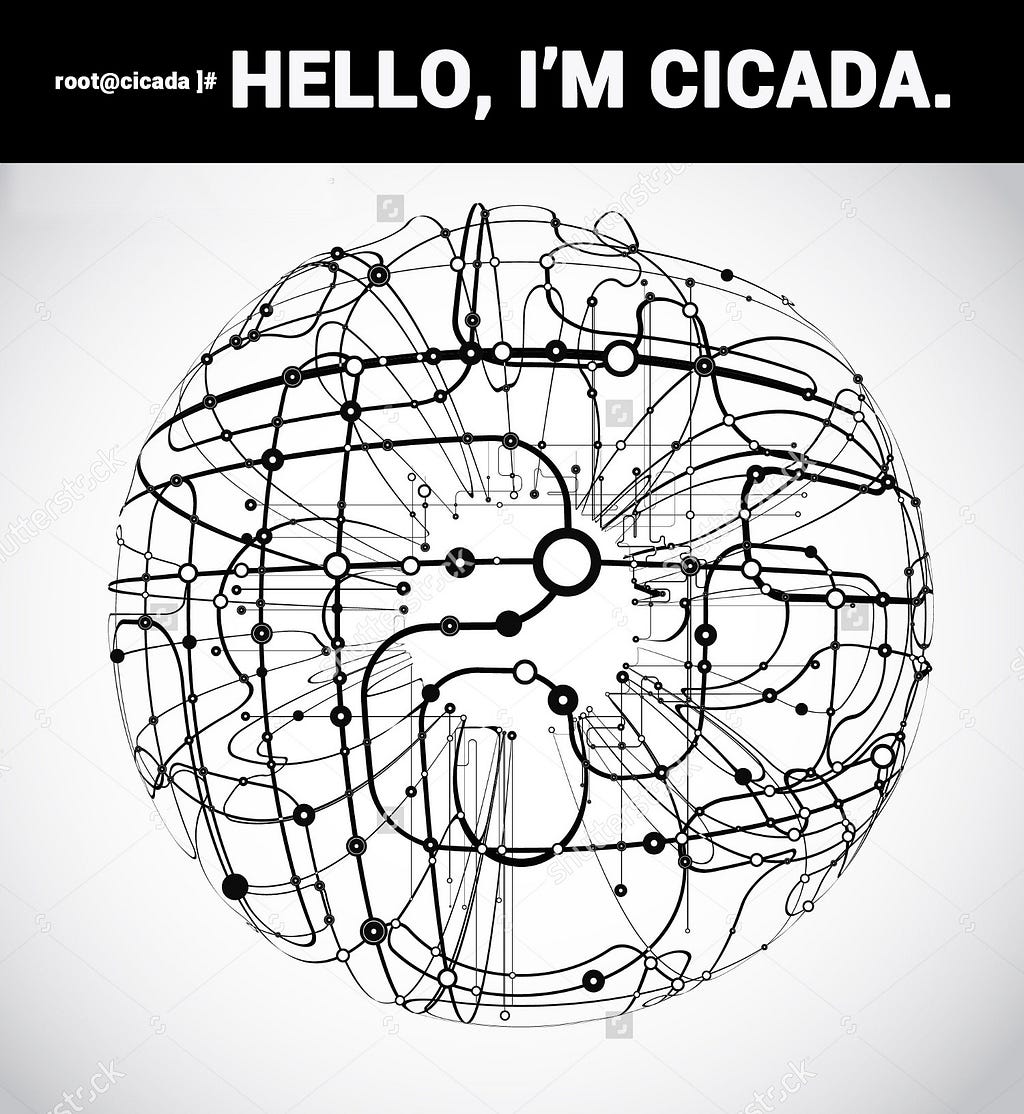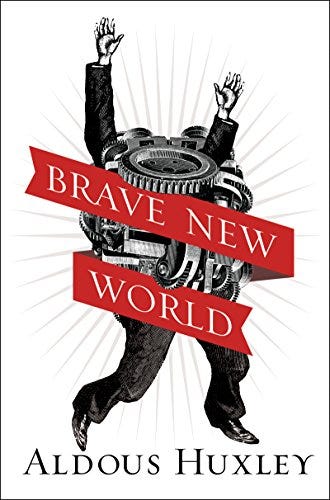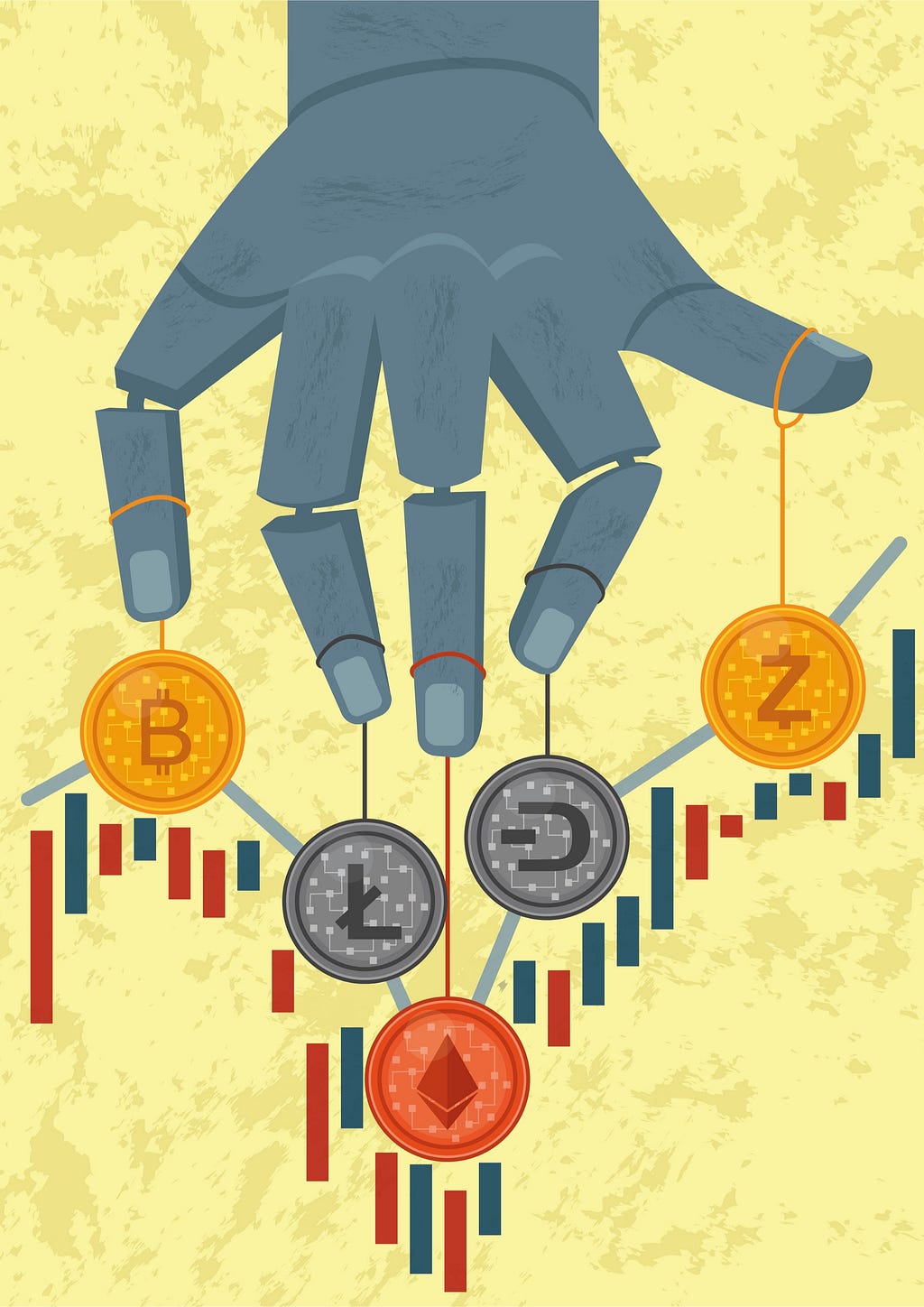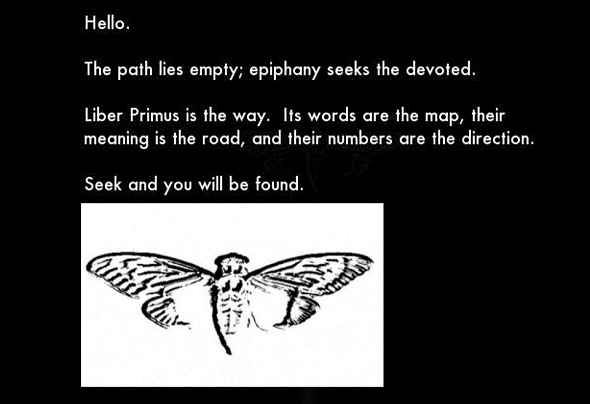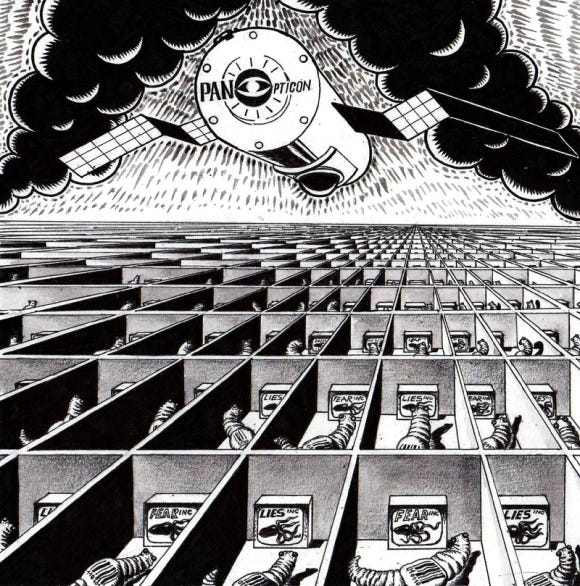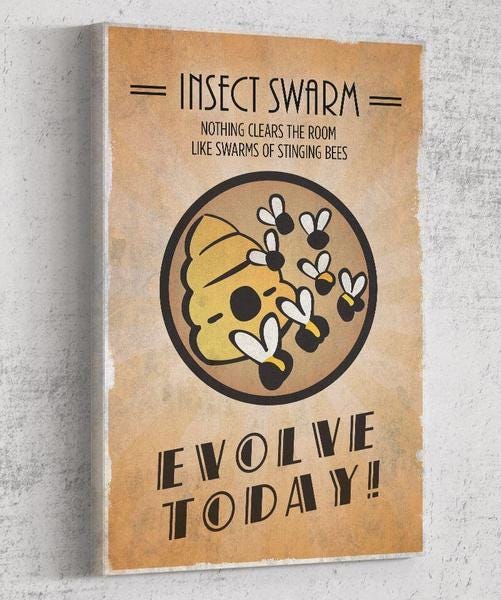Latest news about Bitcoin and all cryptocurrencies. Your daily crypto news habit.

A lot of people ask me about the Cicada project.
Where is it at? How can I help? When is the alpha? Are you behind Cicada 3301? Do you need marketing people? Programmers?
I’ve been asking myself those questions a lot lately too, reflecting on where it is, where it’s been and where it’s going? After a lot of self-reflection I’ve come to one clear answer about what to do with the project.
But before I can tell you where it’s going I wanted to tell you the story of where it’s been.
The Origin
Some people thought I created the Cicada project as a way to market my book, The Jasmine Wars. I admit it started out that way for maybe the first week but it quickly evolved into something else all together.
Originally I thought I’d just slap together a web site about some futuristic tech from the story, create a mysterious ad campaign and voila instant books sales!
Turns out not so much.
Book sales are a lot harder than a stupid marketing campaign. It takes patience and time to write and sell fiction for a living. There is no rushing it.
The turning point for me from marketing gimmick to real concept was the original Cicada white paper.
In the story Cicada is a massive distributed artificial intelligence and nation-state operating system. She’s a voting and communications platform and a fantastic alien mind. In many ways she embodies the best of the human race, while mitigating the worst of our dark dual natures. She seemed like the perfect choice for a chunk of killer future tech so I set out to create an early version of her.
At first, I figured I could dash the paper off in a few weeks. A week later it was abundantly clear that was ridiculous. As an engineer for twenty years I couldn’t just shit out the paper and pretend it made any sense. It would only embarrass me. I wanted it to pass the sniff test, to make people feel like it was really possible and more than that I wanted it to have a chance to actually work.
So I started asking myself questions. A lot of questions.
Could you really build a distributed democracy platform? Do the basic building blocks for something like that even exist? How would a system like that bootstrap into reality? How would it achieve mass adoption? How would it defend itself against people who wanted to corrupt it, back door it and take it over?
I knew right away that many of the pieces hadn’t been created yet. We can’t build strong AI and we really have absolutely no idea how to start. I wasn’t going to pretend that I knew a path to get us there either. A lot of smarter people than me need to do a lot of work to get us to the point where that makes sense, despite popular media’s overriding belief that Skynet and Terminators are just around the corner.
But other pieces did exist. End to end verifiable voting had seen a surge of research in recent years. The Bitcoin breakthrough delivered a decentralized consensus mechanism. Advances in cryptography meant that we could maintain secret ballots and communicate with each other in real time.
If I’d asked myself those questions even a decade earlier the answer was decidedly no on all counts. I’d first thought of the idea of a decentralized democracy platform twenty years ago while fucked up on my friend’s balcony. I looked out over the city and saw it as a massive biological supercomputer, the lights from the cars surging through the streets like electrons. Back then Amazon wasn’t around and the Internet was just getting rolling. Open source barely existed. There was no Github, no Bitcoin, no blockchain, no cloud, no containers, no AI, no telecommunting, nothing.
But now many of the Lego bricks of the future stood at the ready. I just needed to put them together.
So I started digging into everything, studying and reading as much as I could. It didn’t take long before I was knee deep in some of the most obscure research in the world, cutting edge ideas scattered to the far corners of the Internet. There was no guide for me, no light in the darkness. I was completely on my own, reading ideas from people that had no further explanation, no O’Reilly book to explain it in simpler terms, no slick graphical website to sell it to the masses. I had to figure it all out on my own.
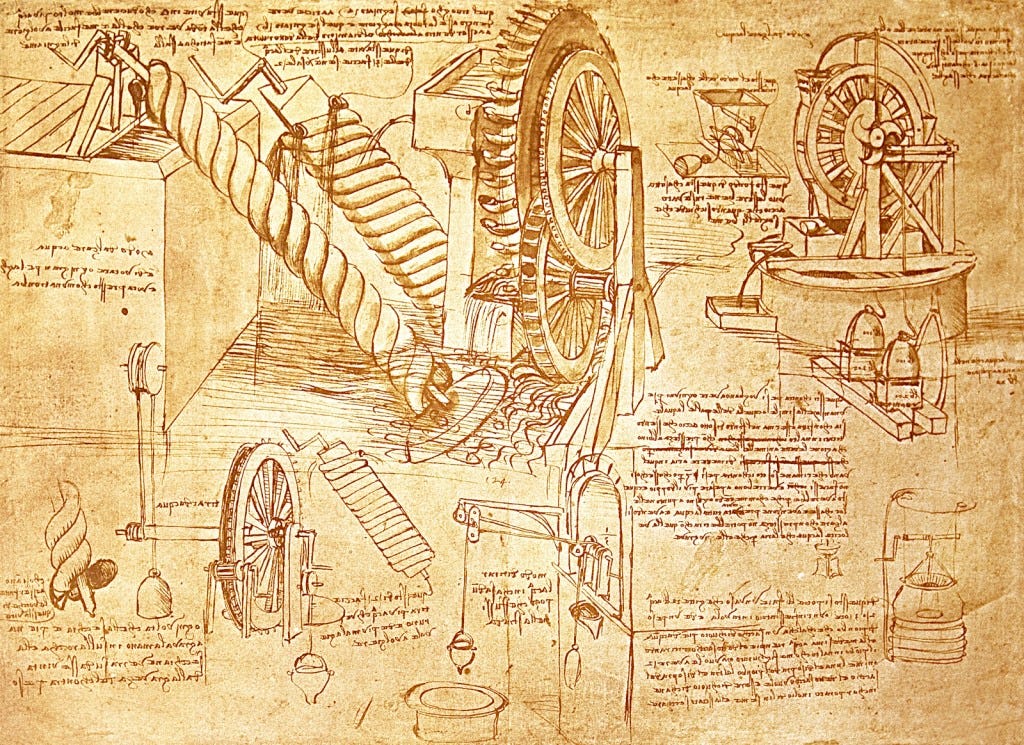 Not actually my notebook just some other genius who created some flying contraption before his time named Da Vinci.
Not actually my notebook just some other genius who created some flying contraption before his time named Da Vinci.
I spent days at my white board trying to solve every single problem in crypto. Instead of writing my book, here I was spending months at the drawing board, often running into totally intractable problems that wouldn’t yield to simple solutions.
Pretty soon I had to ask myself another question:
Are you insane?
The answer to that was:
Insane is relative.
When you take on any massive problem it’s in many ways totally and completely insane. You set out full of hope and quickly learn that you’re up against impossible odds. You’re outgunned, out classed. You seem to have no chance of success whatsoever.
And yet all of that is really an illusion.
It’s just a matter of going forward, taking each step as it comes.
Like Steve Wozniak once said “I learned not to worry so much about the outcome, but to concentrate on the step I was on and to try to do it as perfectly as I could when I was doing it.”
That’s the key to solving any “unsolvable” problem. You just put one foot in front of the other, focusing only on the step that you’re on right now.
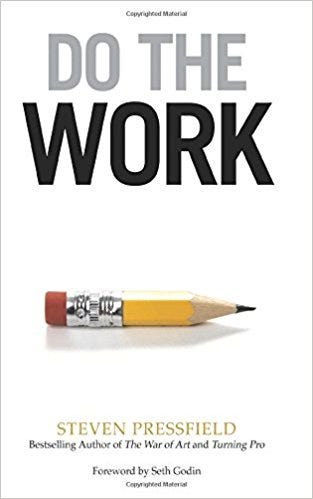 A book about how things get done.
A book about how things get done.
In other words to really figure something out you have to do the work.
It didn’t matter if there was a gap in my understanding of some obscure cryptographic concept or in methods of verifying how people vote without exposing their identity. Tomorrow’s problem is tomorrow’s problem. You can solve that one when you get there. Until then you just have today’s problem, so you put tomorrow out of your mind.
That’s easier said than done. There were days I collapsed in bed, feeling utterly hopeless, my body and mind broken for the day.
What am I doing? Just get back to writing. Ignore this nonsense.
But I couldn’t.
I was obsessed. I couldn’t get it out of my mind. If it couldn’t be done because some piece of the puzzle wasn’t invented yet I could live with that but I couldn’t accept that it couldn’t be done because I’d quit on myself.
I pressed forward, day after to day, trying out concepts, diagramming them, writing about them, pounding the keyboard for hours and hours.
Sometimes I spent six months trying to solve something that just would not come together no matter how I imagined it. Those are the darkest times. You can’t see the light at the end of the tunnel and there is no telling when it all will end.
But somehow I finished the paper and put it out there.
I put the website up with little fanfare. Frankly I was just happy to have the damn thing out of my system. I figured nobody would get it and certainly nobody would give me money for it or care about it at all.
I was wrong.
The Flood
I had a flood of people interested right away.
It got posted on a lot of different forums and debated.
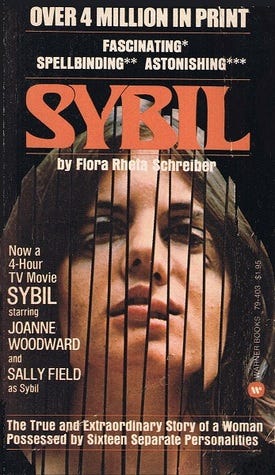 The book the inspired the name for the Sybil attack.
The book the inspired the name for the Sybil attack.
The number one question was always around the ID system. Everyone assumed I’d chosen biometrics as an anti-Sybil defense but I didn’t. It’s a way to create a unique ID for each person and a way to recover that ID after fraud. The unique reputation system was the real key to stopping attacks on the system.
Eventually I got tired of cutting and pasting my responses so I wrote a second white paper focused on the ID and reputation concepts. Of course people still manage to miss it and ask me the same questions anyway but now I can just point them to the paper.
Not long after that programmers and money people contacted me, as well as other projects. I was amazed.
At first I met with a bunch of programmers who joined my mailing list. Some of them were folks coming out of college just getting started. Others were hard core veterans with a wealth of experience. I knew I needed a transcendent programming team, people who could write code that didn’t exist.
I met some incredible coders and people.
And that’s where the problems started.
Inevitably here’s what would go down: I’d meet with people who wanted to dedicate their life to the project for months on end. I would tell them it’s going to take ten years and you won’t be able to just grab some existing libraries, fork Bitcoin and call it a day. They would all nod their heads but secretly they were thinking “Yeah I can, I’ll snag a little from here and there, write some glue code and bam, prototype in six months.”
In hindsight it was inevitable that they’d burn out or give up.
I started to dread the call I would get a few months later like clockwork.
“I’m going to step back from the project. It’s a lot bigger than I expected.”
It was depressing.
Today most people aren’t wired to do long term projects. We want instant gratification and building something incredible is not only hard it’s painful. It requires a constant battle with yourself and the world to get there. We used to do it as a matter of basic survival but today’s technological revolution has made life easier in a million little ways and it’s made us soft. In the past, a sculptor might spend a decade of his life on a single statue or a painter would spend twenty years working the same canvas again and again. Today we aren’t geared to do that kind of work.
But it wasn’t all their fault. It was absolutely mine.
Frankly, I’m a terrible project manager.
I love to come up with ideas and strategies but don’t put me in charge of logistics. For the love of God don’t do that. I’m not wired for it. I find it utterly bizarre that other people need a series of rules and guidelines to move forward, supplied by an outside party. At a mental level I understand it but personally I’ve always known what to do next and when I don’t I just figure it out. I find it unbearably tedious to create those rules for other people, monitor what they’re doing and keep them on track.
So the project fell apart multiple times.
After that I figured the best bet was to merge with another project. I met the founder of the now defunct Fermat project and he and I shared a lot of the same ideas. The difference was he’d been working on his project for three years and had funding. I joined the team in Budapest for a magical week, having fun, meeting incredible people and feeling like this is it. This can really happen.
It didn’t.
Not long after the fissures started to show in the project. A civil war erupted and the project cleaved in two.
I formed a new project with many of the people who’d started the original Internet of People and we vowed to evolve both of our ideas into something new, a meta project, one project to rule them all.
We spent months working on the concepts.
Or at least I did.
The meta project quickly became an exercise in daily rage for me. I was creating 90% of the ideas and the write-ups. Meanwhile the rest of the team was debating about how many damn tokens they would get and how to divide them up for their share of doing absolutely nothing. Even worse, everyone thought of themselves as an Indian chief. Nobody wanted to be a role player. We had a team of all star ball hogs.
We wound up debating governance structures for months. Nobody wanted any leaders. They all wanted to make up their own rules as they went along. Except nobody was making up any rules at all. They found them too constricting. So there were no rules other than we agreed to divide tasks into working groups, like marketing and security.
Actually there was one other rule, a ridiculous one. Each group planned to elect their own leader. That’s all nice on paper but the main problem was that you can’t have the guy everyone likes in charge of the security of an ICO when projects were getting jacked for millions every other week. He or she actually needs to be good at security.
That’s when I realized a project is more than a collection of talent.
It needs the right pieces of the puzzle and some of those pieces are people who are simply hired to do a job and move on. Someone has to order paper clips, make schedules and take out the trash. Instead I had the Brave New World problem, where everyone wants to be the king and nobody wants to clean the dishes and take out the trash.
I also understood with painful clarity that a Decentralized Autonomous Organization or DAO was a hell of a lot more than a smart contract. It requires an entirely new way of thinking about how we organize and motivate people. It needs brand new incentives and punishments. It needs new tools for communication. At this point there is almost zero chance that a DAO could scale to even a moderately successful traditional business today.
In the future I know we’ll get there but living through today’s DAO iteration was as much fun as pulling out my own teeth with pliers and blowtorch. I was trying to lead a bunch of people who didn’t want a leader and yet somehow still thought of me as their leader. It was like being a king with no army. It wasn’t working. I was miserable.
I tried everything to get us to move forward. On one day I’d give an inspiring speech that got everyone excited to get started building something amazing. Another day I would yell and try to fire people up like a military task master. Nothing worked. Nothing got done.
Eventually I quit the project.
It’s a shame really. I created some incredible concepts and I didn’t want them to go to waste so I open sourced them in my article Gamifying the Delivery of Money.
The ideas in that article are a blueprint for changing the world for good.
But the project was finished for me. Cicada had evolved once more and still she never managed to get out of the gate. After I left a bunch of the team left with me. Some of them stayed and tried to make it work but it went nowhere fast.
So there was I was again, nowhere.
The Story of Me
But was I really nowhere?
It sure felt like it.
I got seriously depressed.
I’d dreamed of creating an incredible project and sending it out to change the world but instead I had I no project, no useful code and nothing to show for years of effort.
Then I realized something that I’d been missing the entire time. It was something I already knew but that like all great truths I’d forgotten and had to learn again.
There are millions of paths to choose from in life but only a few that are really right for you.
I asked myself the most important question:
Just because I could build Cicada, should I build Cicada?
That’s really the heart of the matter in anything we do in this life. We can do all kinds of things but should we do them?
The answer for the most part is a surprising one.
No.
The art of life is learning to let go of things that aren’t right for you.
You could say that life is about learning what is not you and leaving that not-you on the cutting room floor.
What we say no to is just as important that what we say yes to.
I realized very quickly that I love creating ideas, strategizing and figuring out the big picture. As a systems architect for most of my life I know how all the parts fit together perfectly to make a working platform.
But I’m a terrible coder and people manager.
The real problem wasn’t the project and its grand ideas. It was me trying to do something unnatural.
Life kept telling me that but I ignored it. How did it tell me?
The way it always does, by giving me obstacle after obstacle that I couldn’t get around.
That’s a totally different experience than what happens when you’re on the right path. You still find obstacles but it’s as if the obstacles are crafted just for you with a hidden weakness that only you can find and exploit. Suddenly you find yourself blowing past those obstructions to the next ones, confident that you’ll find the next answer and the next.
You can use that as a guide to know when you’re on the right trajectory. When the set backs and the misery never stop, you need to stop and reconsider. When the obstacles are brutal but you keep finding a way over and under them that’s the right path.
I always seemed to find a way when I simply created concepts and put them to paper. I could take the six months staring at a blank white board with no answer but when I tried to build projects or businesses out of them they fell apart, not because the ideas were shit but because I’m not meant to run a big company or community project. It’s not my nature.
What I’m really meant to do is write and think and teach. And that’s what I’m doing now. That’s what I’ve dedicated the rest of my life to no matter what else happens.
When we focus on the things we’re supposed to do the Universe lines up to assist us. It’s like the Secret without all the marketing bullshit. It’s not actually a secret at all. It’s just the way the Universe works. When we go down another path that’s not right we get caught in a web of our own weaving again and again.
I love putting my ideas down as clearly as possible and then letting the wind take them and carry them to whoever needs to find them. Like little seed pods they float away on the waves and find root in some foreign soil.
I grew up with the open source movement and now I’m bringing the concept of open source to the idea level.
I don’t need to climb every mountain. There are only so many days in the week, so many days in our lives.
Better to let go and let my ideas land where they land.
That’s what’s happening already.
Over the last few years I’ve met incredible people from all walks of life. Great coders and venture capitalists and incredible thinkers. I’ve met an amazing decentralized ID company that’s followed my work on IDs and built a prototype and a business around it while blending it with their own incredible vision. They have the people to carry it through to completion and to sell it without compromising it and building some back door.
I’ve connected with hundreds of people who told me my work inspired their projects, like Synaptic Celerity, from one of the leaders of the amazing DecStack community.
People take my concepts and weave them together with their own ideas. The interplay of ideas in society evolves and changes us into something even better. At least a dozen projects outright air lifted my concepts into their own papers. Awesome. That is open source in motion.
I’ve had the chance to consult on several projects, helping them rework their own visions into something bigger. I’ve ghost written a bunch of white papers and helped as an advisor on others.
I’m now seeing many new ideas start to take root in the broader community too. I can’t claim responsibility for all of them by any stretch and I won’t pretend to but many of the ideas I laid out in the Cicada papers are starting to show up everywhere. The massive Telegram ICO mega-paper uses a blockchain of blockchains, endless sharding and ubiquitous user friendliness just like Cicada. I don’t claim to have directly inspired them but I can’t really know if someone working on the paper stumbled across my work somewhere. Many of my articles have ended up translated into Russian and Chinese and Spanish just because someone felt like they were worth spreading. Someone told me I have a following in Russia and in China. Who knew?!
The world evolves naturally through evolution and destiny. Sometimes it just steam engines when it’s steam engine time.
I’ve continued to see a growing surge of next-gen decentralization platforms coming out of the wood work as people figure out how to do decentralization at scale. Blockchain might go the way of the Dodo. As the sleek new project Radix points out “blockchain, your days are numbered.”
I’ll write about them more in the coming weeks but they’re one to watch out for this year.
Another project created by a friend in Poland, the Internet of Value, is looking to take back our data so we decide when to share it and how to monetize it, if we want to monetize it at all.
By letting go of Cicada I’ve seen her influence spread out into the world and continue to spread.
One mind working on a problem is an island. A million minds can change the world.
The truth is we simply can’t do everything in life by ourselves. We have to pick our battles carefully because we won’t survive them all. As we make choices many doors close to us and yet many doors open. We have to cut the cord to all the things in our life that are not us. I’m not a project manager and frankly I don’t want to be.
And so I cleared the field to let new crops grow.
And sometimes when you really release something you get the ultimate surprise.
Just last week I gave a talk to Polish entrepreneurs and thought leaders in Warsaw on the future of cryptocurrencies and decentralized consensus technology. To my total shock a local coder pinged me to let me know he and some young people had been working on Cicada for the last year.
Now wouldn’t that be amazing if there were dozens of competing Cicada projects out there?
That’s the true power of open source.
Let the best Cicada win.
The Insect Storm and the Song of the Cicada
Oh yeah. I mentioned Cicada 3301.
A lot of people have asked me over the years if I’m involved with that project or if I’m behind the mystery in some way?
The answer is no.
But it’s also not that simple.
Of course, some asshole on Reddit will inevitably post this in the comments:
Is Dan Jeffries behind Cicada 3301? TLDR. No. LOL.
I just saved his lazy ass some time. He can cut and paste it.
Everyone who reads my work knows that if you jump right to the main points you miss a lot of what I have to say.
My work is food for thought. I get people to think. I break them out of familiar though patterns and get their minds working again.
So what do I mean about it not being that simple?
Well, I actually had never even heard of Cicada 3301 before I named my AI that in the book and yet coincidences abounded between the names and ideas behind them from the very start.
I loved the concept of insects working independently together, building something greater then themselves and yet fully autonomous. That’s where the name came from and of course the sound of the Cicada is hypnotic, divine. The Cicada 3301 mystery seems to be about that as well, as far as I can tell. From the pages we’ve seen translated they all point to a kind of journey to self, a mini-enlightenment that leads to self determination and independent thought in a decentralized collective.
In my own work I’ve always tried to do the same, get people to wake up. I want everyone to think for themselves, to let go of their own mental prisons and see the world with fresh eyes, to find their own truth and take action in their lives.
And to me insects are the essence of decentralization. There is no surprise that both of us chose the Cicada to represent our visions.
A massive distributed colony can change the world. You can crush a million bugs but eventually they overwhelm anything with sheer numbers.
As National Geographic tells us “Like it or not…you’re surrounded — there are about 10 quintillion [insects] on Earth, including about 10 quadrillion ants.”
Insects swarm together or break apart. The can act on their own or as a highly coordinated group. Unlike centralized systems they’re anti-fragile to the extreme.
We’ve found extremophiles living in the harshest conditions on Earth, from flesh melting heat to bone shattering cold.
No matter what you do, no matter what any centralized power does, you can’t stamp out all the bugs. We have them surrounded. It’s when we wake up and realize it that we can change the world.
When you’re lost in the dark and facing the craziest obstacles I’ve found there is always a weird guiding light.
Strange coincidences.
Some people call them synchronicities.
They’re these little glitches in the Matrix, something that shouldn’t be there but that are there. You could set your smart watch to them, if it didn’t have atomic time already.
As a creative person I find them again and again when I’m walking the right road. They light the path forward for me and everyone else who’s paying attention.
In the end it’s probably no coincidence at all that we chose the same name.
I didn’t create Cicada 3301 but somehow the concepts work together to show us the way into the decentralized future.
If you’re like me, you grew up with a lot of hope that technology would change the world. In many ways it did. The Internet gave us a world of information at our fingertips. Now a kid living in a broken down village with a crumbling economy and a corrupt government can log on to his smart phone and study physics with open courseware from the world’s top teachers. We can all become gurus and autodidacts.
The net has given us supercomputers in our pockets and the ability to publish books directly and order rides and food at the push of a button.
But it’s also let us down badly.
We rushed to create a million services in the early days of the Internet, all of them free. Eventually those companies needed a way to survive. They needed to retrofit a business model. And so they did.
That model is surveillance.
They watch and record everything we do, think or say online. They crunch that data and feed us ads for crap we don’t want and services we don’t need. They profile us and track us. They sell that data to the highest bidder as fast as they can.
Data is the new oil and the new gold.
We need to think more completely about how we design the systems of tomorrow. We need to give people power over their data again and “lock in open forever.”
We need systems that balance privacy and security and transparency. It can be done. Believe it. A system that is entirely anonymous or entirely transparent is a sick system. It can’t take into account the full range of possibilities in life. A good system is agnostic, able to serve everyone, even people we don’t agree with and wish didn’t exist.
Our society is increasingly sick. We can’t find common ground. We’re in a war for the future. Increasingly we’ve centralized everything into the hands of a tiny few.
But a new model is emerging:
The insect model.
Decentralized everything.
That’s really what Bitcoin and Ethereum and the thousands of other coins out there are in the end.
They cannot be stopped.
Even if the world powers find some way to agree on world straddling regulation (not going to happen) or work to strangle the exchanges it won’t matter. Decentralized exchanges will pop up like Hydra heads. Apps that live on every phone and computer on Earth with connected to the sprawling new network. Money will go out directly to people through gamification and the people will choose their own money as the overly printed money of the overextended countries of the world recede into the memory of what money once was in the distant past.
Decentralization will change the way we do everything from supply change management to governance. And if we’re smart and we’re lucky we can evolve past surveillance technology and mass centralized monitoring and the death of privacy into something more balanced and beautiful, something that works for everyone and puts to rest our worst tendencies as a species.
The Cicada is the metaphor for that movement.
The powers that be might find ways to cripple and corrupt the early stages of progress but over time no central power can hope to stand against the might of a quintillion insect swarm.
############################################
If you love my work please visit my Patreon page because that’s where I share special insights with all my fans. Top Patrons get EXCLUSIVE ACCESS to the legendary Coin Sheets Discord where you’ll find:
- Market calls from me and other pro technical analysis masters.
- Access to the Coin’bassaders only private chat.
- Behind the scenes look at how I and other pros interpret the market.
- You also get exclusive access to a monthly virtual meet up with me, where I’ll share everything I’m working on and give you a behind the scenes look at my process.
- I’ll follow each talk with a Q&A session. Ask me anything and I just might answer.
############################################
If you’re ready for the big leagues you can level up to the Bitcoin Masons because my link gets you a sweet 10% discount!
Inside you’ll find an incredible community of some of the best traders in crypto posting amazing charts and sharing knowledge and insights day after day. This group even has some of my original teachers, folks who’ve made millions in the market from humble beginnings, posting TA and taking questions.
############################################
If you love the crypto space as much as I do, come on over and join DecStack, the Virtual Co-Working Spot for CryptoCurrency and Decentralized App Projects, where you can rub elbows with multiple projects. It’s totally free forever. Just come on in and socialize, work together, share code and ideas. Make your ideas better through feedback. Find new friends. Meet your new family.
############################################
For some of my most exclusive stories and the best utility coin research on the planet, check out Strategic Coin!
############################################
A bit about me: I’m an author, engineer and serial entrepreneur. During the last two decades, I’ve covered a broad range of tech from Linux to virtualization and containers.
Readers have called my breakout nanopunk novel, The Scorpion Game, “ the first serious competition to Neuromancer” and “Detective noir meets Johnny Mnemonic.”
##################
Lastly, you can join my private Facebook group, the Nanopunk Posthuman Assassins, where we discuss all things tech, sci-fi, fantasy and more.
############################################
Song of the Cicada Project and the Mystery of Cicada 3301 was originally published in Hacker Noon on Medium, where people are continuing the conversation by highlighting and responding to this story.
Disclaimer
The views and opinions expressed in this article are solely those of the authors and do not reflect the views of Bitcoin Insider. Every investment and trading move involves risk - this is especially true for cryptocurrencies given their volatility. We strongly advise our readers to conduct their own research when making a decision.
